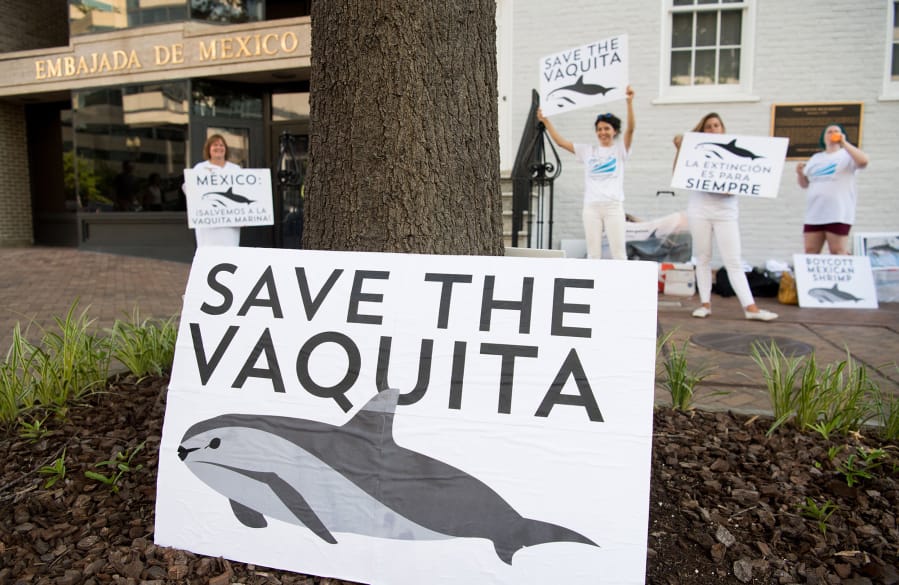BOGOTA, Colombia — The vaquita porpoise, one of the world’s most endangered animals, could become extinct within a year if fishing nets continue being used illegally, a university in Scotland warned on Wednesday.
Numbers of the vaquita, which only lives in the upper Gulf of California in Mexico, may now have dropped to fewer than 10, according to research by the University of St. Andrews published in Royal Society Open Science.
The dolphinlike vaquita (“small cow” in Spanish) is the world’s smallest cetacean, with females measuring 55 inches and males 53 inches on average. The vaquitas, which are gray or white, have a tall dorsal fin and long flippers.
The global vaquita population was estimated at 30 in 2016, the University of St. Andrews said.
Gillnets — nets that hang vertically and catch fish by their gills — kill vaquitas as a bycatch.



